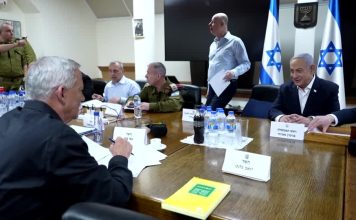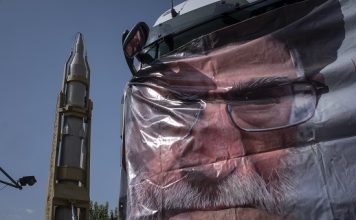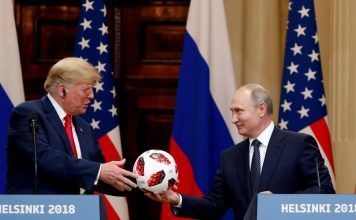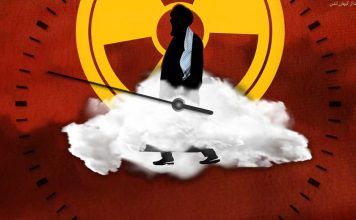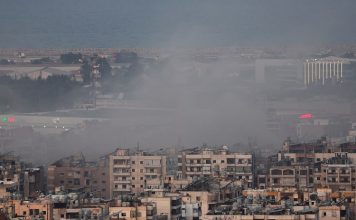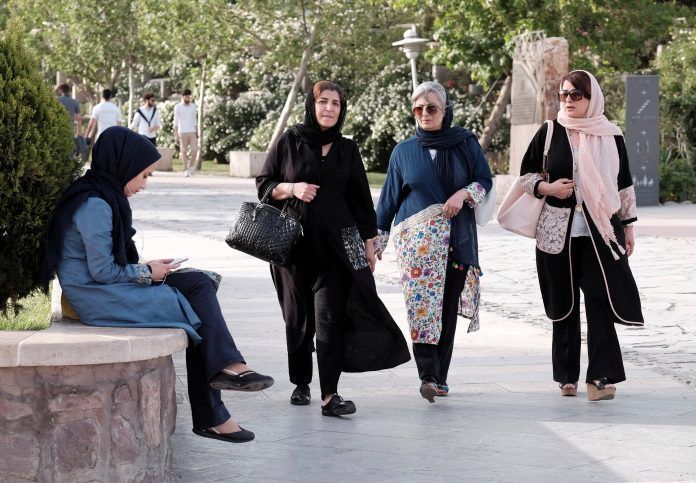
By Kayhan Life Staff
The “Women of Iran for Sustainable Equality” (W.I.S.E) network was launched on social media on July 30 — the same day that people around the world observed International Friendship Day.
Kayhan Life recently spoke to the network’s coordination manager Nahid Husseini, the head of its female entrepreneurship program Soraya Nadimpour, and its spokesperson and director of sports Tonia Valioghli.
The following is an interview with Nahid Husseini, Soraya Nadimpour, and Tonia Valioghli.
Ms. Husseini, why was the W.I.S.E social media channel launched on International Friendship Day?
We wanted the start date to coincide with a historic occasion. Also, we believe that the site should be a messenger of love, friendship, and cooperation. So we chose July 30, which marks International Friendship Day. We dream of a day when our country rejoins the international community under the flag of peace and friendship.
[aesop_image img=”https://kayhanlife.com/wp-content/uploads/2020/08/nahid-hosseini.jpg” panorama=”off” credit=”Nahid Husseini. ” align=”center” lightbox=”on” captionsrc=”custom” captionposition=”left” revealfx=”off” overlay_revealfx=”off”]
Does the channel recognize political diversity and pluralism within Iranian communities — people with different political beliefs, including monarchists, liberal democrats, socialist left, social democrats, and economic liberals? Is the network prepared to work with religious people who advocate women’s rights?
The network comprises people with a wide range of social and political views. However, the network’s core mission revolves around our common goals and not our philosophical differences. There was a tremendous spirit of cooperation when we started the project five months ago, and it has only grown stronger. Expressing and debating opposing viewpoints is endemic to any dynamic society. That is the only way a community grows.
Experience has taught us that such collaborative work yields results. Unfortunately, two obstacles have always prevented cooperation within our society, namely chronic criticism and the failure to acknowledge others. As humans, we grow, change, and develop.
That being said, there are certain red lines that we, at W.I.S.E, will not cross. For instance, we will not work with anyone who supports the Islamic Republic, because we do not believe the regime is reformable. We advocate regime change. Also, we never work with anyone whose hands are drenched in the blood of the people.
Ms. Nadimpour, how were you able to reconcile the various opposing political views before the launch of the W.I.S.E social media channel?
There are two issues involved in any collaborative project, namely setting shared goals and setting aside some of one’s ideological and political views for a common purpose. No single person can accomplish those objectives alone, so we need to work together and get past our differences. We adopted the same approach when drafting the network’s charter, mission statement, and manifesto.
[aesop_image img=”https://kayhanlife.com/wp-content/uploads/2020/08/sorya-nadimpour.jpg” panorama=”off” credit=”Soraya Nadimpour.” align=”center” lightbox=”on” captionsrc=”custom” captionposition=”left” revealfx=”off” overlay_revealfx=”off”]
Ms. Husseini, what is the fundamental difference between your network and the [U.S.-based] Iranian Women’s Studies Foundation (IWSF)?
The IWSF’s primary focus is on scientific research conducted by women throughout the year. The organization publishes these findings in the form of books and articles. It also includes cultural events.
Our network promotes women’s participation in politics. The reason for launching W.I.S.E was twofold: the ongoing political crisis in the country, and women being at the forefront of the fight for justice and equality. Our goal is to enable women to play more significant roles in social, political, cultural, economic, education, and legal arenas. We believe that women must be part of all plans for developing the country.
Ms. Valioghli, what will be the primary focus of the network? Will it deal with social and cultural issues, highlighting the endemic prejudices of a patriarchal and discriminatory system?
These issues are all related. They affect each other. We deal with every single one of these issues under the network’s manifesto. We also highlight women’s movements in Iran. Iranian women’s fight against discrimination and demand for their inalienable civil rights has intensified in recent years. The women’s rights movement is the Achilles heel of the chauvinistic and patriarchal regime in Iran.
[aesop_image img=”https://kayhanlife.com/wp-content/uploads/2020/08/tunia-valoghli.jpg” panorama=”off” credit=”Tonia Valioghli” align=”center” lightbox=”on” captionsrc=”custom” captionposition=”left” revealfx=”off” overlay_revealfx=”off”]
Ms. Nadimpour, what programs and activities have you planned for during and after the coronavirus pandemic?
We have several working groups, including a health and treatment unit, which could play a critical role during the coronavirus pandemic. We will broadcast a program on the effects of the coronavirus on people’s lives soon.
Ms. Husseini, why do you think Iran’s Supreme Leader Ayatollah Ali Khamenei opposes the UNESCO 2030 Agenda?
The UNESCO 2030 Agenda is a 15-year ‘roadmap to eradicate poverty and achieve sustainable development by 2030 worldwide, ensuring that no one is left behind.’ The plan highlights ‘sustainable development,’ which means using our natural resources responsibly and preserving them for future generations. Water shortage and the destruction of rainforests will have dire environmental effects. We must think of the future of our children and grandchildren.
The UNESCO 2030 Agenda promotes gender equality and rejects all forms of discrimination and prejudice. It advocates a secular governing system devoid of any ideology. That is the reason Mr. Khamenei vehemently opposes the 2030 plan because it is contrary to his doctrine.
Iran is a signatory to this document.
Ms. Valioghli, what do you expect from Farsi-language media outside Iran?
The media could play a crucial role in promoting W.I.S.E.’s manifesto. The Farsi-language media should raise the profile of career women by highlighting their expertise and contributions to various fields and professions. The press can also report on the activities of women’s rights movements and expose the Islamic Republic’s human rights violations.
Ms. Nadimpour, does the network plan to produce any documentaries?
We have just launched the network on social media and have generated no revenue yet. So we cannot embark on massive projects. We primarily use social media as a communications tool. We hope the Farsi-language media will help us. We need exposure and publicity, so that more people know about us. Our plans will depend on how well the public receives W.I.S.E.
Ms. Husseini, how many working groups are in the network?
The founding board members decide the overall policy of the network in line with its manifesto. We have 10 working groups in various areas, including human rights, health, education, sports, arts, media, technology, labor, finance, and public relations. We would like to ask anyone who wishes to help our efforts to contact us on social media.
Ms. Valioghli, do you have a plan for launching various campaigns?
We will focus on the work that women can do as future political leaders of the country. We will also work closely with other women’s rights movements and campaigns that complement our mission and manifesto.
Ms. Nadimpour, will you also be working with women’s rights groups inside the country and other women organizations around the world? Will you work with these groups on joint projects?
W.I.S.E needs to establish ties with other women organizations and work with them closely. Our public relations department is in charge of this activity and will announce all of its plans.
This article was translated and adapted from Persian by Fardine Hamidi.

